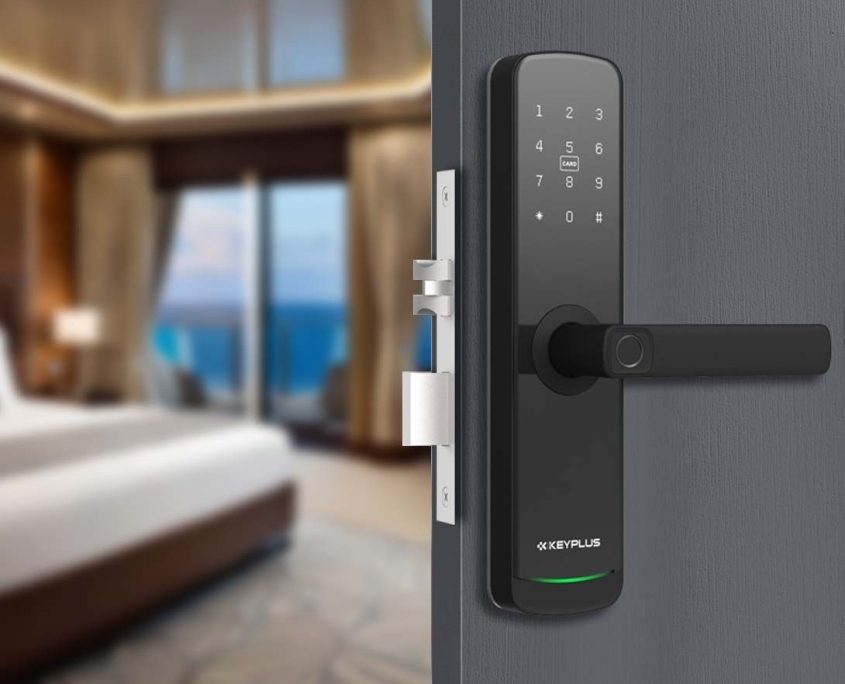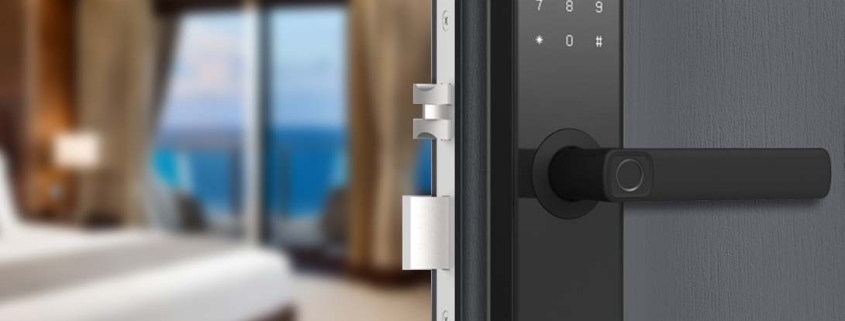How to Upgrade Hotel Door Locks?
Upgrading your hotel’s door locks is one of the most impactful improvements you can make for security, guest convenience, and operational efficiency. Whether you’re replacing old mechanical locks or upgrading to the latest smart keyless systems, this guide will walk you through:
1.Why hotels upgrade their door locks
2.Different types of modern hotel locks
3.Step-by-step upgrade process
4.Cost considerations & ROI
5.Common mistakes to avoid
By the end, you’ll know exactly how to choose, install, and manage a state-of-the-art locking system that enhances your guests’ experience and protects your property.
1. Why Should Hotels Upgrade Their Door Locks?
Enhanced Security
-
Older mechanical locks can be picked or copied.
-
Electronic locks provide audit trails (tracking who enters and when).
-
Instant key deactivation when guests check out.
Improved Guest Experience
-
Keyless entry (mobile keys, RFID cards) eliminates lost key issues.
-
Faster check-in/check-out with digital access.
-
No more lockouts due to demagnetized keycards.
Operational Efficiency
-
Eliminate physical key management (no more cutting or replacing lost keys).
-
Remote access control for staff (housekeeping, maintenance).
-
Integration with PMS (Property Management Software) for seamless operations.
2. Types of Modern Hotel Door Locks
A. RFID Keycard Locks (Most Common Upgrade)
-
How they work: Guests tap a card (or fob) to unlock the door.
-
Best for: Mid-range to luxury hotels.
-
Pros:
More secure than magnetic stripe cards
Long-lasting (no swiping wear)
Easy to reprogram
B. Mobile Key & Bluetooth Locks (Cutting-Edge)
-
How they work: Guests unlock doors via smartphone app (e.g., Hilton Digital Key).
-
Best for: Tech-savvy hotels and boutique properties.
-
Pros:
No physical keys = no lost cards
Allows remote check-in
Reduces front desk workload
C. Biometric Locks (High Security)
-
How they work: Uses fingerprint or facial recognition.
-
Best for: Luxury resorts or high-security areas.
-
Pros:
No keys or cards needed
Nearly impossible to hack
VIP personalization
D. Hybrid Locks (Battery + Hardwired Backup)
-
How they work: Battery-powered with emergency wiring.
-
Best for: Large hotels with strict security needs.
-
Pros:
No downtime during power outages
Long-term reliability

3. Step-by-Step Guide to Upgrading Hotel Locks
Step 1: Assess Your Current System
-
Are you using mechanical keys, magnetic stripe cards, or RFID?
-
How many locks need replacing?
-
Do you need PMS integration?
Step 2: Choose the Right Lock Type
-
Budget hotels → RFID keycard locks
-
Tech-focused hotels → Mobile key systems
-
Luxury properties → Biometric or hybrid locks
Step 3: Select a Reputable Vendor
Top hotel lock brands:
Keyplus (reliable, widely used) (high-security) (mobile key integration) (durable, long battery life)
Step 4: Install the New Locks
-
Professional installation recommended (misaligned locks can malfunction).
-
Test each door before going live.
-
Train staff on reprogramming and troubleshooting.
Step 5: Integrate with Hotel Management Software
-
Connect locks to your PMS for automatic key expiration.
-
Enable remote access control for staff.
Step 6: Educate Guests on New System
-
Provide clear instructions for keycard/mobile key use.
-
Offer 24/7 support in case of lock issues.
4. Cost Breakdown: How Much Does It Cost to Upgrade?
| Lock Type | Cost Per Door (Installed) | Best For |
|---|---|---|
| RFID Keycard Lock | 150–400 | Budget to mid-range hotels |
| Mobile Key System | 300–600 | Tech-forward hotels |
| Biometric Lock | 500–1,200+ | Luxury/resorts |
| Hybrid (Battery + Wired) | 400–800 | Large properties |
Additional Costs:
-
PMS integration (1,000–5,000)
-
Staff training (500–2,000)
-
Maintenance contracts (optional)
ROI Tip: Upgrading can reduce lost key costs and increase guest satisfaction, paying for itself in 1–3 years.
5. Common Mistakes to Avoid
Choosing the Wrong Lock Type
-
Don’t install biometric locks in budget motels—guests may find them complicated.
-
Avoid proprietary systems that lock you into one vendor.
Skipping Staff Training
-
Employees must know how to reprogram keys and handle lockouts.
Ignoring Backup Access
-
Always have a mechanical override key in case of power failure.
Forgetting About Battery Life
-
RFID & mobile locks need battery changes every 1–2 years.
6. Future Trends in Hotel Door Locks
Predictive Key Assignment
-
AI could assign room keys before guests arrive.
Phone-as-a-Key (PaaK) Expansion
-
More chains will adopt complete mobile check-in/check-out.
Sustainability-Focused Locks
-
Solar-powered or kinetic energy locks (powered by door movement).
Final Thoughts
Upgrading your hotel’s door locks is a smart investment that improves security, guest experience, and operational flow. Whether you choose RFID, mobile keys, or biometric systems, the key is selecting a solution that fits your property’s needs and budget.
Have you upgraded your hotel locks recently? If you want to know more, please leave a message in the comment area and contact us!









